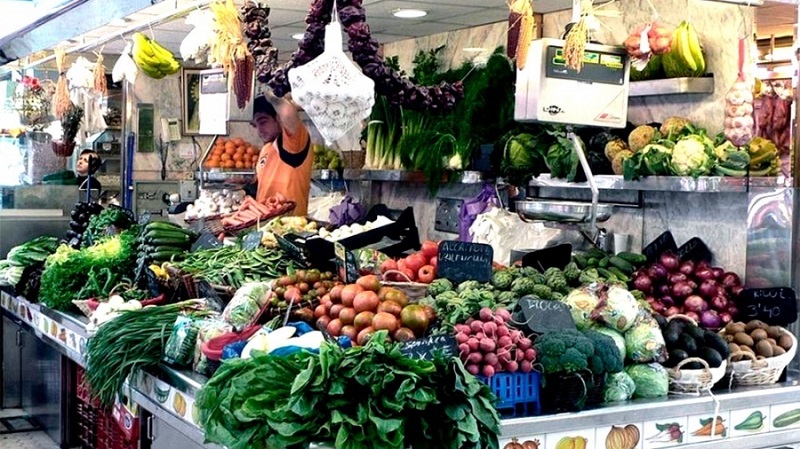
The October inflation was 8.3% and the increase in average prices throughout the country accumulates 142.7% in the last 12 monthsaccording to the information published this Monday by the Indec. Inflation especially accelerated in August after the devaluation of 22% of the official exchange rate that was carried out Sergio Massaagreed with the FMIthe day after the primary elections.
However, in the last twelve months the prices of Food and non-alcoholic beverages rose 153.8%, above the general level. This increase has a stronger impact on the lower income sectors, who allocate most of their income to basic necessities. In the ten months of the year, the increase in food prices was 132.2%, above the general level (120%).
What are the foods that rose the most in October?
Among the first 10 foods and drinks that climbed the most in June, lettucewhich according to the Indec report rose 40.7% compared to the previous month. Until September, this product was available in the Greater Buenos Aires (GBA) at a price of $571.60 per kilo, but in October it started to have an average cost of $ 804,03. However, it is a product with seasonal variations, it cost more than a thousand pesos in April. What sets the tone for its strong rise in price is the rise in 231% compared to October of the year past, well above the general increase.
He is followed by plain white ricewhich is achieved in GBA in average terms at $789.18 per kilo in October, compared to $582.04 the previous month, an increase of 36% in just one month and 370% in one yearwhen a one-kilo package cost $167.76, according to data published by Indec.
Products also increased by more than double digits. dry stew noodles (32.1%), round tomato (24.5%), lemon (23.8%), fine salt (16.4%), sugar (15.7%), bottled beer (15 .5%), soaked dried peas (14.7%), salami (12.9%)among others.
A product that also had a strong increase, but is not part of the food basket, is liquid detergentwhich rose 12.9% monthly.
The rise in prices is a blow to the pockets of the working class; the most affected are the informal sectors, which lost 44.1% compared to 2016.
Inflation is not a “neutral” phenomenon, which affects everyone equally. While concentrated economic groups have managed to gain an advantage and increase their profits, the working class suffered a deterioration in their wages and income.
In recent years there has been an increase in inequality. The transfer of income from employees to big capital it was of U$S 70,000 million during the current government of the Frente de Todos, plus others US$31,000 million transferred during the macrismo (Cifra Center).
So that salaries do not continue to lose against inflation, the fight is for a emergency increase in salaries, pensions and social benefits and that they are updated monthly according to the price index. It is necessary reject the agreement with the IMF and end the adjustment program.
Source: www.laizquierdadiario.com

